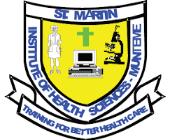Preparing Future Healthcare Leaders
Health science education has undergone a remarkable transformation, adapting to the changing needs of the healthcare industry. Traditional classroom settings have expanded to include hands-on training, clinical rotations, and advanced simulation technology. Today’s health science programs focus not only on imparting medical knowledge but also on fostering critical thinking, teamwork, and communication skills.
From Theory to Practice:
Health science education has shifted its emphasis from theory to practice. Students now have access to state-of-the-art laboratories and simulation centers where they can apply their knowledge in realistic clinical scenarios. This practical experience is invaluable in preparing them for the challenges they will face in their healthcare careers.
Interdisciplinary Learning:
Health science education has embraced interdisciplinary learning. Students collaborate with peers from various healthcare disciplines, mirroring the collaborative nature of healthcare delivery. This approach enhances their understanding of how different specialties work together to provide comprehensive patient care.
Patient-Centered Education:
A hallmark of modern health science education is its focus on patient-centered care. Students are taught not only to treat diseases but also to understand the unique needs of each patient. Empathy, cultural sensitivity, and ethical considerations are integrated into the curriculum to produce well-rounded healthcare professionals.
Integration of Technology:
Health science education has harnessed the power of technology. Virtual reality, telemedicine, and electronic health records are now integral parts of the curriculum. These tools expose students to the latest advancements in healthcare and prepare them to work in a tech-driven healthcare landscape.
Global Perspective:
Health science education has adopted a global perspective. Students learn about healthcare systems worldwide, gaining insights into healthcare disparities and the importance of addressing global health challenges. This global awareness equips them to contribute to healthcare solutions on a global scale.
